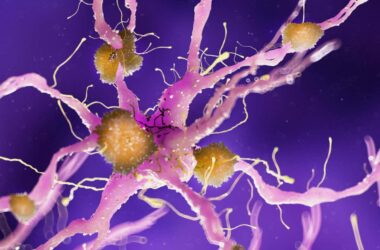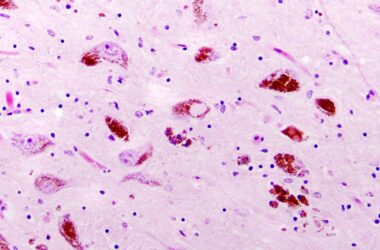In the quest for better health and well-being, one aspect that has captured the attention of researchers is the impact of genetics on food choices. The idea that our genetic makeup might influence the foods we prefer to eat has gained traction in recent years. Studies have shown that individual food preferences are not merely a matter of personal taste but can be shaped, to some extent, by our genes. This exciting field of research aims to develop personalized food plans based on an individual’s genetic predispositions, promoting more nutritious and tailored dietary choices.
1. The Genetic Component of Dietary Intake
At the forefront of this fascinating research is Joanne Cole, a distinguished researcher at the University of Colorado. Cole and her team have been delving into the intricate relationship between genetics and dietary intake. While acknowledging the influence of external factors such as socioeconomic status, culture, and disease diagnoses, they have identified a remarkable 814 regions in the human genome linked to various aspects of dietary preferences. These regions encompass a wide range of food choices, including fruits, vegetables, meats, and fish consumption.
2. A Phenome-Wide Association Study
To gain deeper insights into the connection between genetics and food choices, Cole and her team embarked on a phenome-wide association study. This ambitious endeavor involved scrutinizing the 814 genetic regions for correlations with specific traits such as taste preferences, eating habits, and health conditions. The researchers relied on data from a staggering 500,000 participants of the UK Biobank study, a wealth of information that allowed them to unearth 481 genetic regions directly influencing dietary intake through flavor perceptions and preferences.
3. The Significance of Flavor in Food Choices
According to Joanne Cole, flavor holds a pivotal role in shaping our food choices. Understanding how individuals experience different flavors is the key to unlocking the potential of personalized nutrition. The sensory genes involved in dietary intake are currently under intense investigation, with a specific focus on how people with different gene variants related to taste and smell receptors experience pleasure and reward activation in the brain. The ultimate objective of this research is to make healthy eating effortless for everyone by leveraging the influential role of flavor.
4. Tailor-Made Food Plans
The implications of this research are profound. Imagine a world where your food choices are tailored precisely to your genetic predispositions. Instead of struggling with one-size-fits-all diets, individuals could access personalized food plans, optimizing their nutritional intake based on their unique genetic makeup. This approach holds tremendous promise for improving dietary habits and overall health outcomes.
5. Embracing the Power of Personalized Nutrition
While the concept of personalized nutrition based on genetics is still in its early stages, the potential it holds is undeniably exciting. As research progresses, we can anticipate a future where nutritional recommendations are no longer generic but highly specific to each individual. This shift in approach has the potential to revolutionize the way we view and interact with food, making healthier choices more accessible and sustainable.
6. Conclusion
The interplay between genetics and food choices is a captivating field of study that has far-reaching implications for our dietary habits and overall well-being. Joanne Cole and her team’s research at the University of Colorado has shed light on the role of genetics in shaping our food preferences. Through the understanding of flavor perceptions and the impact of genetic variants on taste and smell receptors, the path towards personalized nutrition is becoming clearer. As we await further advancements in this area, we can look forward to a future where each individual can embark on a health journey guided by their unique genetic blueprint.
FAQs
Is personalized nutrition based on genetics already available?
While the concept is still in research and development stages, certain companies offer genetic testing for dietary insights. However, comprehensive and widely accessible personalized nutrition plans are yet to become mainstream.
Can personalized nutrition really make a significant impact on health outcomes?
Yes, personalized nutrition has the potential to revolutionize health outcomes by promoting better adherence to diets tailored to an individual’s genetic predispositions.
What are the challenges in implementing personalized nutrition plans?
The main challenges include ensuring the accuracy of genetic testing, addressing ethical concerns, and making personalized plans affordable and accessible to all.
Can personalized nutrition help with weight management?
Yes, personalized nutrition can aid weight management by offering tailored dietary recommendations that suit an individual’s metabolism and genetic profile.
What other areas of health could benefit from personalized approaches?
Personalized medicine is an emerging field that could benefit from genetics-based approaches to develop customized treatments for various health conditions.
Topics:
Insights: – Genetics can influence a person’s food choices and preferences. – Factors such as socioeconomic status, culture, and health conditions also impact food choices. – Previous studies have identified 814 regions in the human genome associated with dietary intake. – A phenome-wide association study found 481 genetic regions that directly affect dietary intake through flavor perceptions and preferences. – Understanding how individuals experience different flavors is essential for personalized nutrition. – Researchers are investigating sensory genes connected to dietary intake to determine how gene variants affect pleasure and reward activation in the brain. – The goal is to make healthy eating easier for everyone by leveraging the role of flavor.








